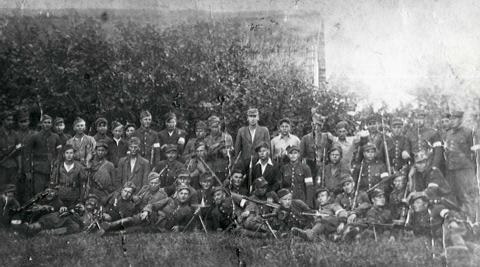
In early October 1943, a friend of the Ukrainian Basili Korneluk, under cover of night, led us to him only by acquainted paths to the town of Turoszy. It was about 15 km and there he placed us at his friend Ukrainian, while after a fewer days we found another shelter, already in the Polish family. However, we were unemployed and destitute. It's the destiny of a wanderer, but for now we've lived! yet I was hired by the Germans to demolish houses, remaining after murdered Jews. The earnings were low, not even adequate for food. In mid-October 1943, we entered the town of Kowla and moved in with Łuckiewicz's cousins. Jan Łuckiewicz found me a occupation in a German company: “Handwerkstette” in a szewski plant. The crew of this plant was aware that I did not know much about this craft, but I was already able to do any things. parent and sister were hired as home aid and the brother became a booty. The earnings weren't high, but you could survive.
In the second half of December 1943 a tiny secret mobilization to guerrilla troops began. Around 20 December 1943, in the evening I shared a wafer with my household and at night in a group of about 10 guided boys, went into the woods. The way led through the village of Zielona to the village of Zasmyki. There was strong self-defense and partisan troops formed. I was in the Partisan branch of Lieutenant Władysław Czermiński. The OP commanders were most frequently reserve officers, and there were besides “Silent” officers who were trained in England. They had considerable experience and skills in sabotage and diversion.
We were introduced to the martial arts by the officers, with intensive training. I was in the artillery platoon. Classes were purely theoretical. There were not only cannons but even rifles. It was hard to arm the recently arrived guerrillas. We were equipped with various weapons: Polish and German “Mauser”, Soviet, Hungarian, Italian, French rifles. There were large difficulties in supplying ammunition, suitable for these rifles. I had a German firearm from the late 19th century, and it was matched by “Mauser” ammunition.
In horse reconnaissance of the first battalion cf. “Gzymes”
A memorable day in my guerrilla life was 16 January 1944. On that day on a clearing close the village of Suszababa, on a winter sunny and cold day, the Field Altar stood on white snow. On the other side, 300 fresh guerrillas ready to take a military oath. The words of the military oath were squeezed by the throat, and tears from the eyes flowed in the singing of Mazurek Dąbrowski: “Poland has not yet died...”. That anthem we haven't been able to sing in the last fewer years. I've been released with specified a large feeling of joy that it's inactive impossible to forget.
In the second half of January 1944 from east areas Volynnia in the region of the Czech village of Kurzyczów came the Partisan branch “Bomby”. Decimated and very tired. He was arrested by the russian NKVD by a commanding officer, Captain Władysław Kochanski, “Bomba”, and more than 10 people from his individual protection were murdered in a shameful way. In these tragic circumstances, Lt. Feliks Szczepaniak, ps. “Słucki” became the commander of the branch. The squad went through a lot, was besides harassed by the typhus. Eventually, although 500 people left Kostopol’s area, small more than 100 people reached Kostopol.
In the vicinity of Kowla, the troops counted 300 or more people. The Grouping Command decided to strengthen the Bombs OP. They chose the volunteers, first of all for the horse scouts, to which I besides volunteered. So I became a soldier of the “Bomby” branch. I was assigned a horse. It was a beautiful, furry arabian but without saddle. In the quartermaster service there was a saddle plant with a tiny cast of people. I was told that if I wanted to ride a saddle, I had to do it myself. I received a skeleton (construction) saddle and under the supervision of a craftsman I myself sewed a saddle in a set after a fewer days. The skills of the szewski, previously acquired, so here I was for a fewer days a rhymer.
In January 1944 she was appointed to the service of 27 Volynska DP AK. They formed regiments, battalions, companies. The "Bomby" OP was merged with the "Gzymes" OP and a battalion was created. It was the first battalion of the 45th Infantry Regiment of 27 Volyn DP AK. I became a horse scout in the silent battalion of Lt. Franciszek Pukacki, ps. “Gzys”. The commander of the platoon (horse scout), the “Gzysa” baron, was Wachmaster Józef Wajdyk, “Black”, my direct superior. Our battalion had a peculiar task, namely protecting the division staff, we were simply at the disposal of the chief of staff. Among the most crucial tasks, was to admit the site associated with planned actions against the outlaws and Germans. Often, we were a reconnaissance point in front of a group of subdivisions, going into action. At that time, we took the enemy's defence fire until we reached the lead, the main forces of our army. We frequently formed a division of safety of an officer leaving for instructions to Warsaw, or individual who went to the capital, in part replacing the radio station at the disposal of the division staff.
On the boastful conflict way 27 Volynska DP AK
On patrolling and observing the accommodation area of 27 Volynska DP AK I left rather frequently t.j. 2-3 times, and sometimes 4 times a week. I was actively active in battles with the ups and Germans. I fought UPA under Osmigowiczs, Odziutych, the main and dense were the buoys. I besides participated in the conflict of winning the Turopin railway station, where there was a pass connecting the roads from Ossy to Bielin. The crew of the fortified railway station and crossing in Turopin and the defence of the German railway bridge on the Turia River close Werba were heavy armed and rather numerous. The fight for the railway station lasted for 2 days. Eventually, Turopin station was captured, but the railway bridge Germany maintained. At that time, the railway line Kowel – Włodzimierz Wołyński was excluded from the services of Germany. This became a fact erstwhile our troops won 2 crucial stations: Turoszy and Turopin–Bobły. In this episode, tracks and railway equipment were partially stripped, and it was already a front line.
It was the time of our activities, our implementation in the Kresach, in Volyn Action “Burza”. Our military and civilian administration control of the country, even before the east front comes. We carried out this task well, here they were free from the Germans and the activities of UPA south-western part of Kowel, confederate part of Luboml and north-western part of Włodzimierz Wołyński.
The “Gzymes” battalion was accommodated in the villages of Ossa and Rzewuszko (Riewuszko). I was with my quarters in Ritchie. During this time, our scout patrol found 2 church bells in the woods close the village of Volczak. After careful examination, I recognized that these were the bells from the Church in Swojczów: a large bell cast in the 1930s – those and the mediate bell. By the time the branch of Ruchuszko was reunited, the bells stood at the command of the First Company. Prior to accommodation, the decision was made to safe the bells by burial in the ground. In securing, burying and masking the place, I was involved. I think those bells are inactive there.
The front was coming. He's already approached Kowel. The division staff moved into the vicinity of Lubomla, and my battalion to the village of Pustynka k. Lubomla. In early April 1944, I participated in a patrol to admit the anticipation of crossing the Bug River to the west. We investigated the situation on the Bug River from Binduga to Corridor. This patrol included 10 russian guerrillas and 14 of the “Gzymes” bar. During this time, a branch of russian guerrillas was cooperating with our division. The patrol commander was our lieutenant. We found that there was no anticipation of crossing the division, due to the steep banks of the river and the strong German cast. We returned from our assignment on 8 April 1944, the large Saturday evening.
A day later on 9 April, on the Sunday of the Resurrection of the Lord after the morning toilet, we proceeded to celebrate Easter breakfast, sharing a Christmas egg. For this breakfast, the commander himself came to our quarters. He wished for a fast end to the soldier's walk and return to his families, but breakfast was not finished. An alarm was issued due to the fact that Germans attacked. A fewer weeks of fighting against Germany in the lap began. I was given the task of liaison between the commander of the Defence Section Lieutenant “Gzymes” and the division staff. On the first day of the fight, I was somewhat wounded by a shrapnel in the back. After I removed the shrapnel and treated the wound with sanitation, I did my occupation until tonight. russian OP withdrew from the area of combat with Germany. Our 27 Volynian DP AK fought respective linear German divisions, including the “Viking” armored division. I felt worse on April 12, I was sent to a field hospital, and my typhus was found to be sick.
Soldiers shoot but God carries bullets...
I don't remember precisely being in the hospital, I was feverish. What I remember was lying in any country hut in Mosura. After the German attacks, we were loaded with carts filled with hay and moved into the Mosur Forests. At the same time, there was confusion, and it turned out that any branch in green uniforms was approaching us. The shooting started, the infirmary was unprotected. All healthy soldiers were on the defensive. A defence thought arose, an irregular shooting began. I, lying on my car, conscious of the situation, took the firing position, loaded the magazine into my 10-gun, self-repeated rifle. And here, erstwhile the cartridge was put into the barrel, a alternatively complex lock was healed – the spring of a self-repeated device broke. The crab has become useless. And it happened, the words of the song came true: “...soldiers shoot, and the Lord God carries the bullets...”.
Anyway, I didn't get a shot back then. The coming soldiers shouted at us: “Don’t shoot! (Nicht shisen!)”, they shot into the air. It turned out that it was a branch of the Hungarian troops who took us all prisoner without harming us. We were at that time in friendly corners with Hungary, and this ward received any information about our infirmary in the woods. The first moments of captivity were rather strange. About 100 people were captured, including 10 Soviets and 1 doctor and 3 or 4 paramedics. infirmary patients who were healthy, the another doctors and paramedics fled to the woods.
The Hungarians have separated from our group of russian guerrillas, I do not know their fate. On the another hand, they thoroughly reviewed us, took weapons, ammunition, elements of military clothing, changed us into civilian "clothes" and handed us over to the Germans as a civilian infirmary from Kowla, being guarded in front of the front. The basis for this claim was that all medical equipment was characterized by signs of the infirmary in Kowl. The equipment was smuggled into a field infirmary in the earlier period, while doctors and paramedics had authoritative IDs for infirmary workers in Kowl. The Germans were not full convinced of the "truth" discussed above, but Hungarian officers were constantly guarding us, not allowing us to do harm, and there were intentions on the part of the German to destruct us. Finally, we were loaded into railway cars and transported to Chełm Lubelski. In Chełma, part of us were even placed in a city hospital. My clothes were already deposited in a infirmary warehouse, and after a good bath, after being dressed in infirmary clothes (pajama), I was already in the infirmary room. After a short time, we were ordered to take our clothes from the warehouses and go to the fundraiser. We're back on the rail ramp. The infirmary staff in Chełma did not manage to hide us and so we were put in a concentration camp in Chełma Oknow.
In captivity and forced labour in East Prussia
After respective days in the camp, representatives of the Polish Red Cross, Chełma branch, they came to our barracks. They've been given approval to aid us feed. They brought us bread, compotes, margaritas, cigarettes. Around 18 May he was bombarded by Chełm by russian aviation. 1 aircraft was “captured” with German headlights, fired on by German anti-aircraft artillery. The pilot wanted to get out of the field of lighting and firing "released" all the bombs, saving himself from a faster flight after being relieved. Bombs fell, of course, on the “miss hit” and 1 hit the anti-aircraft cannon position, next in the mediate of the camp, destroying any barracks, as well as killing and hurting russian prisoners and us Poles. I besides got a fewer shrapnel. The 3rd bomb hit a defender tower in the camp barrier line, a large teardrop in part of the barrier was formed. It was an chance to escape from the camp, but no 1 noticed this favorable situation, despite good lighting, by lanterns suspended on parachutes by the Soviets. Additionally, the area was lit by burning tankers with fuel and ammunition wagons, most likely artillery, judging by the explosions. 1 of the paramedics was besides injured during the raid. Our first aid was given by our doctor and paramedics. We had good care.
In late May 1944, I recovered completely, and the wounds of the bombing healed. Arthritis in the legs, i.e. from ft to ankle, most likely acquired during multiple leg frostbites during winter patrols in the guerrilla. At the beginning of June, after a thorough examination by German doctors, it was stated that I was healthy and 1 day along with others, and there were 20 Poles, we were loaded into a freight wagon. In another carriages there were russian prisoners, charged 40 or more people. Transport has gone into the unknown. On the way we sang Polish folk songs as well as patriotic songs. Transport stopped in Otwock. A civilian approached our carriage and asked us, “Who are we?” We replied that those who did “confusion” in Volyn. He informed us that an Allied invasion of Normandy began today. So it had to be June 6, 1944. The alien besides added that we should be ready, due to the fact that if transport stops in Warsaw, they will effort to reflect us. The transport actually stopped overnight in Warsaw, but any action was impossible due to the fact that there was a transport with the German army next to it.
Still in Chełma, we received a sanitary bag for the road, which I was the guardian. During the preparation of the bag for the road, I managed to pack a method pocketknife and cigaret lighter with cotton dressing. erstwhile we passed Lublin we began preparations to escape, although we knew that transport was well guarded by the Germans. With all due care, we cut the car from within the holes, cutting the boards rather deep, right by the metallic posts. The slits were masked with bread and ichthiol ointment, close to the appearance of the boards. The Germans controlling us did not announcement these holes. Unfortunately, the escape did not take place due to the fact that the Germans carried out transport only in the day, and at night they stood on very well guarded stations. We were taken as far as Królewiec in East Prussia, to Stablack concentration camp. It was the "Stalag B" KL divided into respective districts and so: the Polish POWs' territory from the 1939 war, the French's territory from 1940, and the russian POWs' district. The second brought together erstwhile Red Armies, Italians who rebelled against Musolini, Yugoslavian from Broz-Tito guerrillas and we were besides imprisoned there, 20 Poles from 27 Volhyńska DP AK. Although the Germans were inactive unsure that we were guerrillas. The worst surviving conditions were, of course, in our ward. all day with peculiar carts, they were transported after a twelve dead prisoners, especially Italians and Soviets. The most resistant to hard camp conditions were the Yugoslavians, but we Volyniacs besides kept to the tads.
Food portions were quantitatively and qualitatively very bad. regular we received a condition (not a full liter) of soup cooked from dry tabloids and nettles, and the potato did not always come, it was our dinner. A tiny condition of bread, a spoon of marmalade and possibly 2 dkg of margarine were allocated for breakfast and dinner. We went to work in a alternatively remote, forest-based underground artillery factory. Our occupation was to stack boxes of missiles into piles and then burden them into wagons. The large happiness was to be assigned to loading food into the wagons. We have come to specified efficiency that at the time of hand-to-hand feeding (chaining), everyone has already bitten a part of bread. So we had adequate to eat, and although the breads were razed, the Germans had not noticed. When loading peas, groats or another goods, the bags were “breaked” and the bulk materials were poured onto the ramp. Of course, we were cleaning the ramp, but on this occasion we were filling the trousers, specially prepared. After returning to camp, we managed to cook these articles and prepare, for those times, rather tasty meals. We shared these meals with another companions of misery, employed on the worse parts of work.
On a farm in the town of Ladsberg Ost Preusen
The commemorative day was 15 August 1944, on that day during the morning rotation call we were called up 7 people from 20 Volyniaks. The camp cap led us to the camp headquarters. After any time, we were loaded into a truck, without giving any information about what would happen next. We noticed that we were transported, only this 7 – demo behind the camp gate. Finally, the car stopped in the city, in front of the awesome building “Arbeitzamt”, where we were set up for cruel purposes. We spent 2 days there with no thought what was coming. We had a “review”, there were respective German farmers who were watching us closely, and after a while they pointed out their own recognition.
I was chosen by a farmer from Schonwiese village named Wolf, name I can't remember. He owned a farm with an area of 100 Prussian morgas, i.e. about 25 ha. The full area of the farm was cultivated. The surviving livestock are 4 horses, 10 dairy cows, 10 juveniles (i.e. heifers and bulls), pigs, sheep, ducks and chickens. The host is an old widow, 2 adult daughters, and the boy who came for me. This man was comparatively young, possibly 30 years old, but unfit for military service – shortsighted. There was quite a few field work, including livestock. Fortunately, this work was no alien to me.
The attitude of the German hosts was friendly to me. The Wolfs were practicing Roman Catholics and each Sunday they went to the Church for Mass. The devotion was held in the town of Ladsberg Ost Preusen, now Górowo Iławeckie in the state of Warmińsko-Mazurski. I know that due to the fact that I utilized to drive, it was about 5 km. The parish priest practiced a “religious connection” with foreigners. 1 Sunday a period was meant for foreigners. Then we besides drove together, and I attended 2 Holy Masses, i.e. at 10 a.m. and 11 a.m. for foreigners. The sermon was preached in German. At that time, the hosts would go to the cafe for coffee, and after mass together we would return home. From time to time I was called to a separate room, where in the evening, around 11:00 I was asked to perceive to the radio and translate. It was "Bom-bum," that's what my German radio London called it. They were curious in information from another radio stations than German radio stations, about the situation on the fronts, on this occasion I, too, was well aware of the war situation. I was fine there, we all ate together, I wasn't treated like a slave.
The January 1945 offensive brought the front line closer to the village of Schonwiese. The Germans were ordered to prepare for evacuation. We should have prepared a supply of food. It was not possible to slaughter breeding animals without the authorisation of the authorities. My owners did not have specified a permit, but decided to “self” slaughter. The professional butcher could not have slaughtered without permission. A housekeeper, an old lady, asked me to slaughter a pig, saying: “You Poles can do anything.” I said yes. There's been a comic situation due to the fact that I've never slaughtered myself. This time, we went to the pigsty together with the host. Women prepared hot water, i.e. boiling water. The host armed with a pistol, beautiful, chromed, 7 mm caliber, proposed that I shoot the pig. I said I can't, I can't shoot, I'm not authorized by the authorities to usage firearms. Then the landlord put a weapon to the pig's head, shot him erstwhile and twice, and the pig just shook his head. Then I went in, stunned the pig with a 10 kg hammer and flushed blood. As I could, so I stripped the slaughtered animal into peculiar kinds of meat, and the women prepared everything for the jar.
Evacuation through the Vistula Basin to Gdańsk
At the end of January 1945, my host was called to “Volksschturm” – a common move. And we are prepared to evacuate. We moved west on 4 February 1945. At the last minute my colleague Wacław Warszewski joined us, who was released from the concentration camp with me and worked in this village, with a neighbour of a farmer. Unfortunately, he was not pleased with his “service”. During the evacuation storm, he detached and joined us, driving a second pair of horses. After various, little interesting adventures, we reached Braniew. Further land riding was impossible due to the fact that Elbląg and the surrounding area were already acquired by the Red Army. The Germans decided to evacuate the civilian population through the Vistula Basin from Braniewa to the Fishermen's Corners, on ice. The ice thickness was about 30 and 40 cm. Horse cars were weighed on the Bravian shore in Nowa Pasłęka. The overweight remained on the shore. A way was set through the Ice Flood in 5 rows, about 100 m apart and wagons in a row at 30 and 40 m apart. The way led from Nowa Pasłęka towards Krynica Morska, and further along the Wiślana Mierze and further to Rybacky Corners. At the tallness of Krynica Morska we were bombed by russian aviation.
Every bombing on land gives emergence to fear, but an incredible impression is caused by bombing on ice, where there is no way to shelter. I was in the last, 5th row, looking from the meter. After the bombardment, there was an amazing view, a large gap in the ice – holes in the ice after exploding bombs, filled with crushed ice, shredded horse meat and pieces of human body. On the surface of the ice, remains of carts, clothes and remains of people. From Rybacky Corners we reached Gdańsk. There we were placed in military barracks, empty – the troops were not there.
This longing day of freedom
At the end of February 1945, my hosts decided to further evacuate the ship from Gdańsk to Szczecin. From the Management Board of the City of Gdańsk they received a letter stating that I (my name and surname) was obliged to bring 2 pairs of horses with carts to Szczecin. That's what happened. My Germans were on the sea road, and I was on the land road with my friend Deke. On 1 March 1945 we reached the Old Glinch in Kaszubach. There we stopped, the road was cut off due to the fact that there were fierce fighting over the Kołobrzeg, which we had no thought about. We waited there until 8 March 1945, i.e. until the front arrived. That day the village was occupied by russian troops, which dug out just outside the village due to the fact that the Radunia River was an obstacle. We've been ordered to retreat from the front line, so we've been liberated.
I decided to drive these horses home, so I headed east. I was going to scope the village of Przewale in Zamojszczyz, where my uncle's namesake – Jan Jakubiak lived. My friend Deke wasn't curious in having horses, but he said he'd aid me get to the Waterman. He then intended to enter his household in Chełma. We moved without a map, without an informant, utilizing the information we remember from school. We were heading towards Bydgoszcz, but we were returned from this road, due to robberies and looting in these parts. So we went to Toruń. Behind Chelmza we were stopped by any civilians with MD bands on their hands and rifles. After a brief conversation, they said they were taking our horses and wagons for military use. Without individual weapons, we had no chance with these people, so here we were "freed" from horses and wagons. We walked and reached Toruń. At the City Hall, we were granted passes to decision towards home by free train. We arrived by freight trains to Warsaw, got off in the western part of the city. It was the second half of March 1945. Through the rubble of the destroyed Warsaw we reached the East Warsaw railway station. Passenger trains have already run to Lublin from this station. The substituted train to Lublin was loaded to the limits of possibilities. There wasn't even area on the bumpers. Me and Deke and a fewer more people got on the roof and we got to Dęblin, there was inactive area for us in the carriage. With transfers, I arrived in Zamość on 31 March 1945, staying at the station.
The ellipse of my life is the last year
This morning, I walked to the Wall. It was already Easter on 1 April 1945, I arrived at the site around 9 a.m. Uncle John didn't admit me. The last time he saw me was in 1938, knowing that I had changed a small for 7 years. I learned that my parent and siblings live in the village of Zubowice, that here I passed a farm that my parent received as compensation for property left in Volyn. It was a Ukrainian guesthouse. During this time, the remaining uncle's household returned from the Resurrection with Tyszow. We sat down to breakfast together. The ellipse around my life was the last year, due to the fact that my unwind started with Easter breakfast 1943 . After Easter breakfast, my uncle took me to Zubowice home, Mom wasn't there, she was inactive at the guests' home in Perespa. At home, I found Sister Mary and Brother Joseph. The news of my return from German captivity spread across the area by lightning. Mom just didn't believe it, she said it was impossible, she thought it was a sad gag on prima-aprilis. And yet it was true. We warmly and warmly greeted with tears of joy in our eyes. My household was included, but for my father, who became the victim of the Volyn genocide.
Mother received a farm with complete economical buildings and 15 ha of land as compensation. During this time, 2 another Polish families lived with us from the Mircza area in the territory of Hrubieszów. These people were raised in fear of the UPA bands, which at the time were swarming in these areas and mass murdering Poles there. These families returned home peacefully only after the action “Wisła”. We started out making money from the beginning, from the first spoon, knife and fork. No tools, no livestock. Gradually, however, our resources were increasing, but we were most pleased that we were alive, that we were together again and that the terrible war was yet over. It's time to think about what's next.
We young people grew up and we already knew that we would not all last from this farm. We decided that Józio would stay at home while Mary and I would look for another possibilities and so it did. As a soldier of the Home Army (AK), officially undisclosed, I was not welcome by the folk power. So I decided to go to another parts of the country. So from 1 September 1955, I lived in the town of Prabuty, Pomerania.
Prabuty, January 27, 2005
Jan Felix Jakubiak
P.S.
[a fragment of the memories of Jan Feliks Jakubiak from the colony of Hirk, Ossa's village, Turkod, Kowel territory in Volyn, rewritten from the first sent and developed S. T. Roch, 5 April 2011 Glasgow, Scotland]



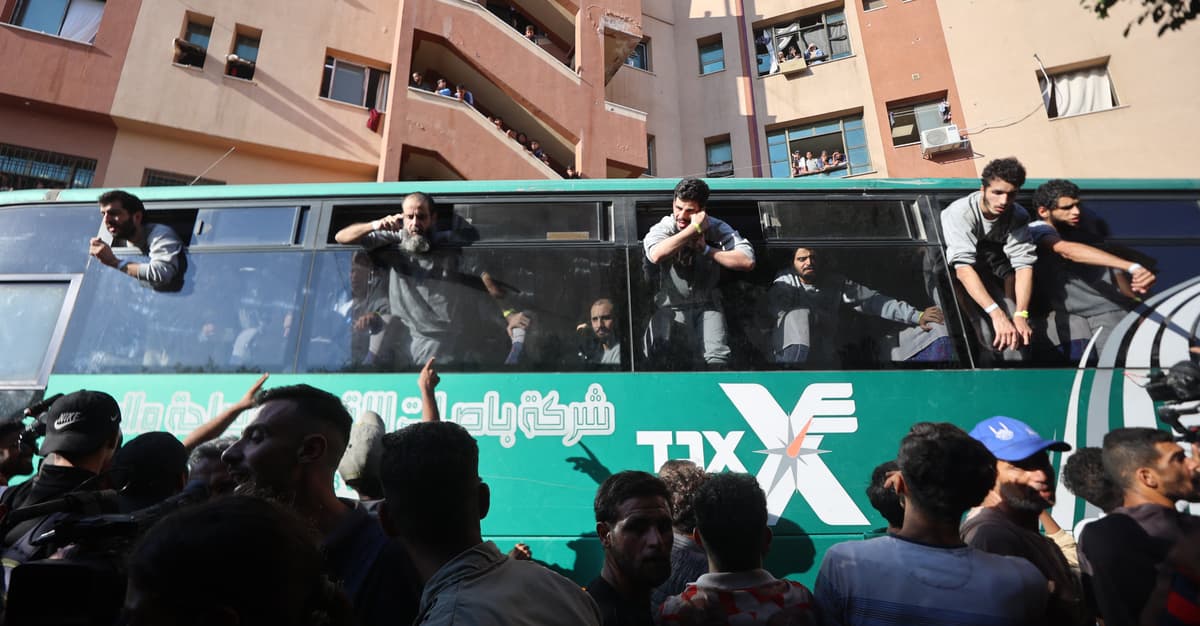
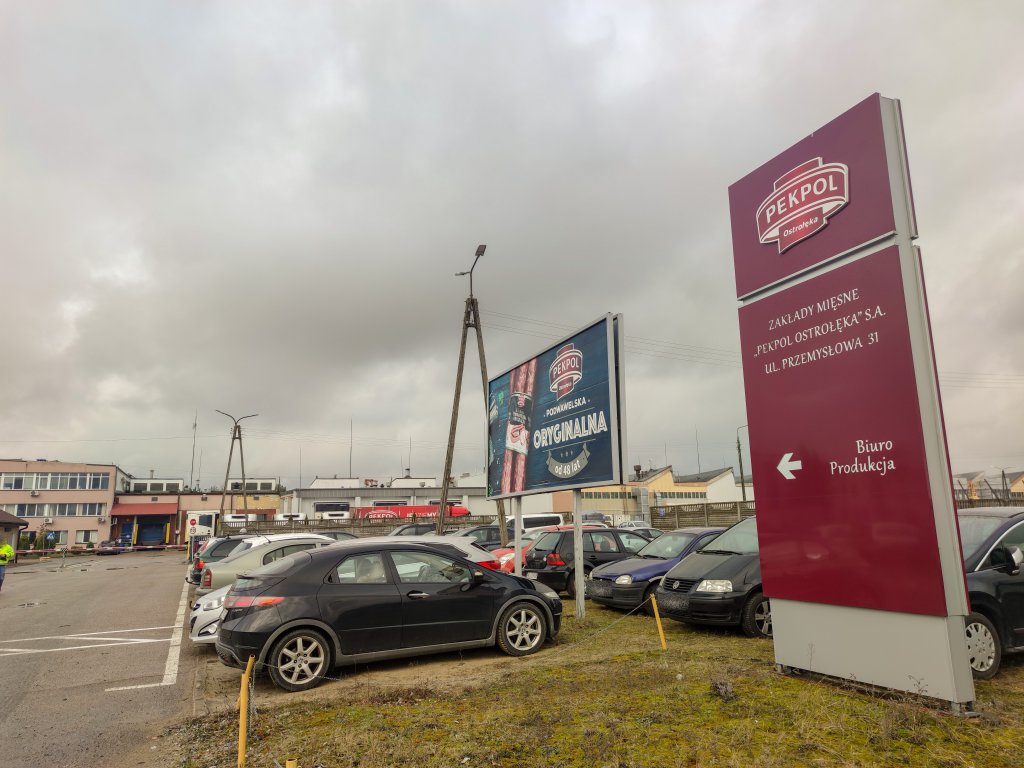


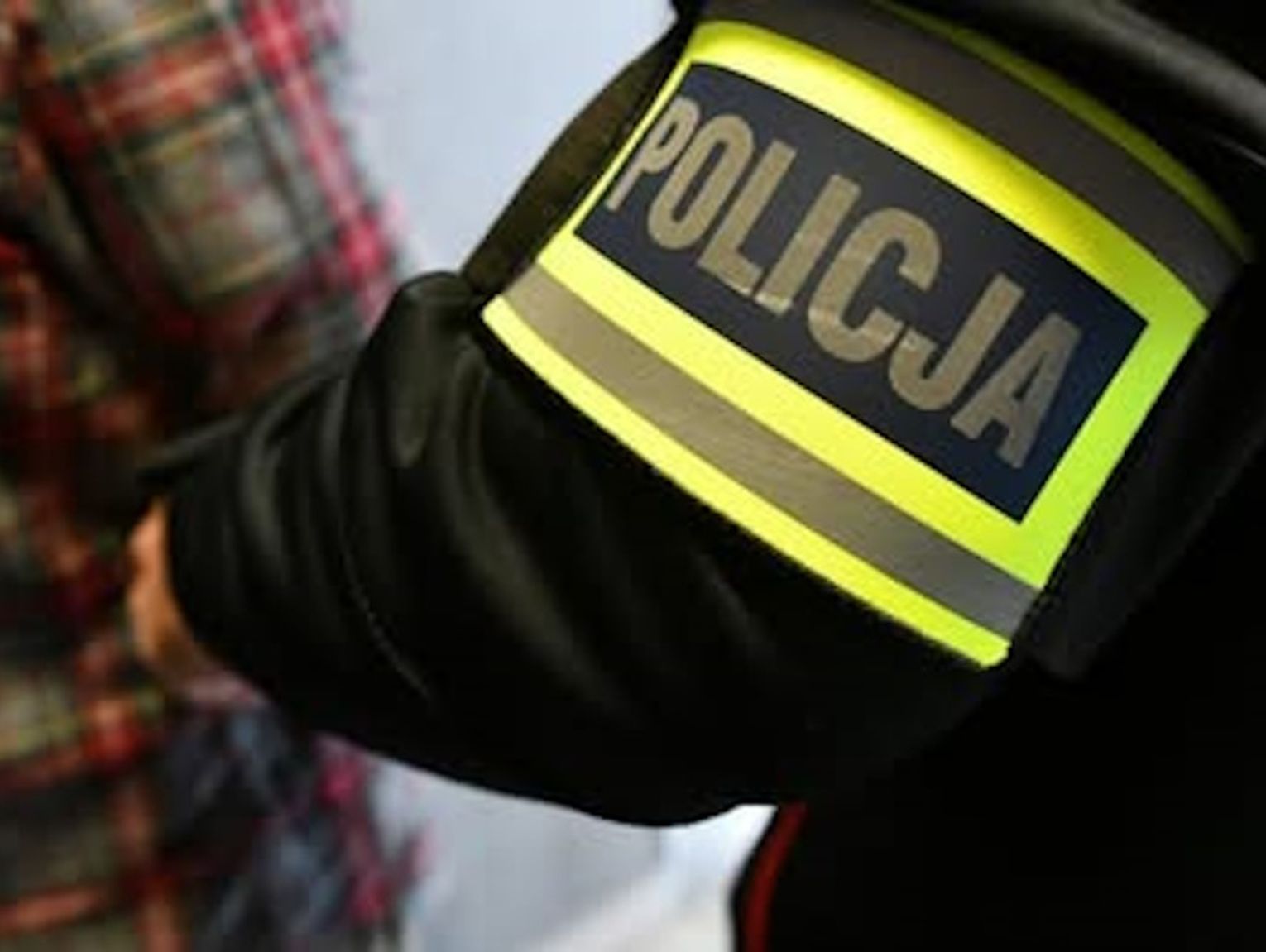
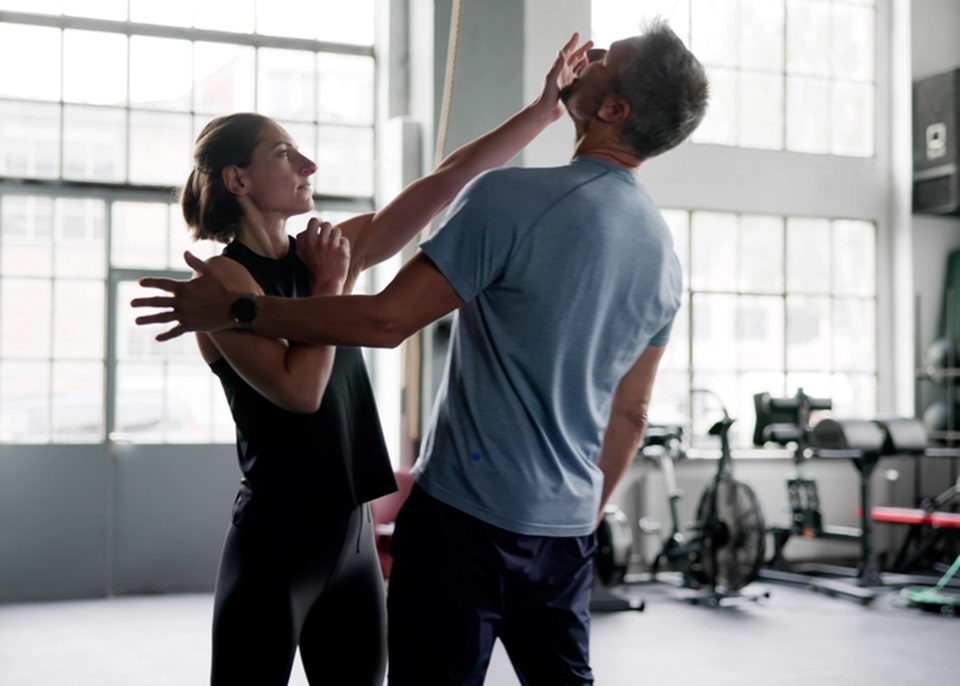

![Wygrała w sądzie. Z SKO i MOPSem nie było tak łatwo. Warto walczyć do samego końca i życzę innym osobom dużo cierpliwości. Walczcie [Świadczenie pielęgnacyjne]](https://g.infor.pl/p/_files/38488000/podwyzki-38487768.jpg)